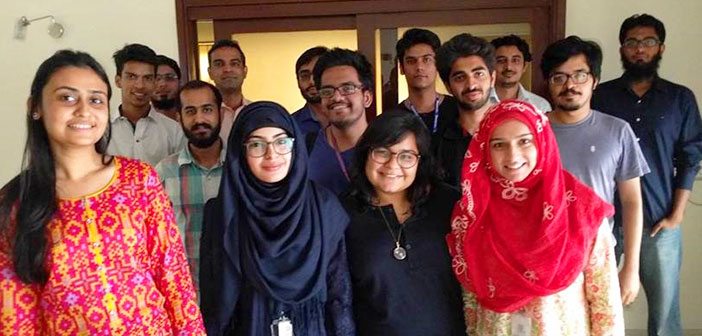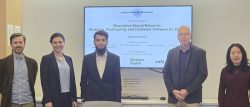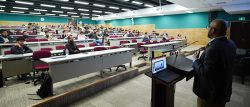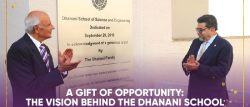Computer Science sophomores and first-years visit Active Capital IT for some hands-on learning related to the Functional Data Structures course
HABIB UNIVERSITY, April 15, 2016: Habib University students enrolled in the CS200 Functional Data Structures course took a class trip to a local information technology solutions provider on April 6, 2016. The purpose of the trip was to learn about practical use of functional programming, according to the organizer, Assistant Professor of Computer Science Dr. Waqar Saleem.
The Computer Science program at Habib University aims to regularly organize such trips to demonstrate applications of theoretical concepts in the real world to its students. Creating connections between textbook learning and real-world application is a defining feature of Habib University’s style of education.
For this trip, Dr. Saleem chose Active Capital IT (ACIT) since it is one of the few companies that use functional programming in their solutions. “Functional programming is somewhat esoteric and I was curious if there are any companies that use functional programming [in Karachi]. I asked around and ACIT turned out to be one,” he explained.
By all accounts, it was a professionally and academically enriching experience.
“We learnt how a sophisticated software is divided into modules,” said Hammad Siddiqui, a student on the trip. “These modules are chosen to be written in the best and the most optimal programming language. For instance, the online version control website, GitHub, is not only written on Ruby on Rails, but it has its networking protocol written in erlang (a functional programming language) for faster communication between the servers.”
“We learned that there is a vast array of programming tools available, and the professional way to choose between these tools is to pick a tool most relevant to the problem we would like to solve,” recalled Anas Masood.
The students also got to experience what technology startups look like in Pakistan. “We learned about ACIT, about their competitive selection process, the kinds of tasks they perform, and some things about their work environment,” said Anusha Fatima. “I realized that people in industry give preference to potential candidates who bring with them diversity of talent and who have done out-of-class projects,” she added.
Fatin Nawaz had some good memories of the trip: “I enjoyed the tech-y, almost nerdy nature of ACIT. There was no big show: it was just people with computers working.” she commented.




